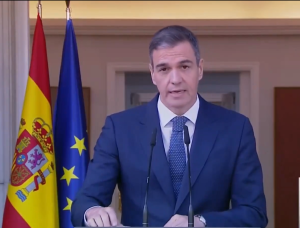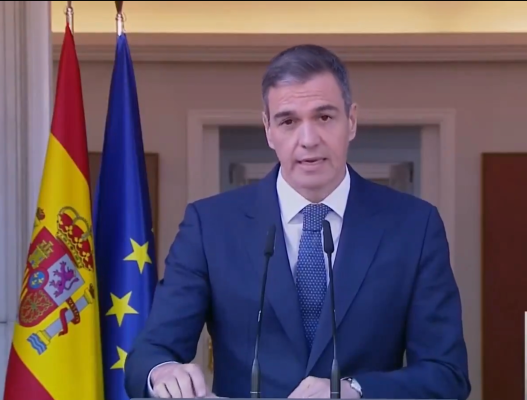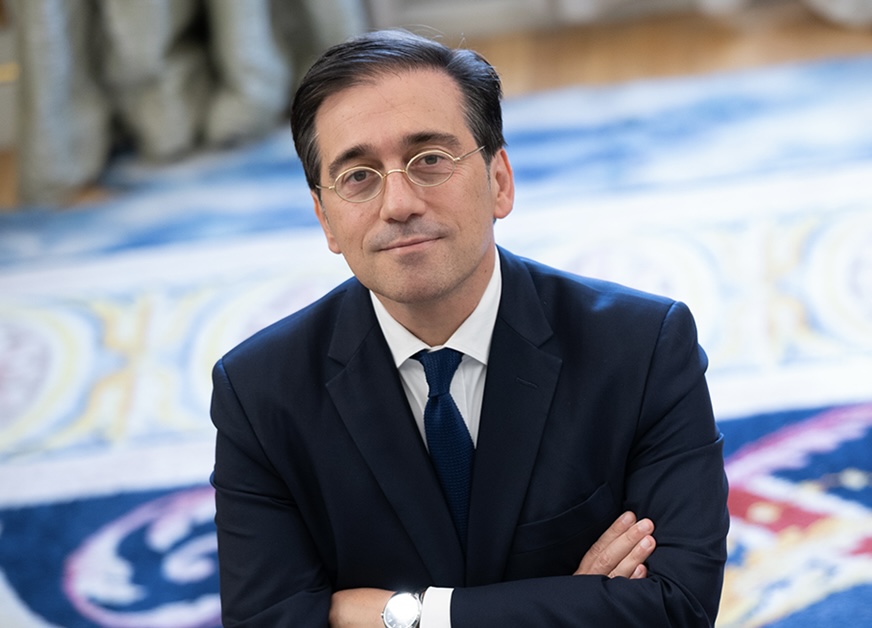
SPAIN, IRELAND AND NORWAY RECOGNIZE PALESTINE AS A STATE
This May 28th, three European countries join the nations that formally recognize Palestine as a state, with the right to a territory, a capital, and a government of its own.
The three European governments joining this formal recognition today are Spain, Ireland and Norway.
With them, 146 of the 193 countries belonging to the United Nations (UN) have made such recognition. They do not include the United States, the United Kingdom or any of the G7 countries.
On the other hand, 19 Latin American countries, i.e. all except Panama, already officially consider Palestine as a state.
The importance of today’s announcement lies in the pressure it may bring to bear on other European nations to join in this recognition. The sights are especially set on the United Kingdom, France and Germany. Achieving this would be an important counterweight to the support Israel receives from the United States.
The Spanish government, led by Pedro Sanchez, has taken steps to bring more nations into this trend. A second wave is expected to include Slovenia, Luxembourg and Belgium.
The other nine European countries already recognizing Palestinian statehood are Sweden, Cyprus, Romania, Poland, Bulgaria, Hungary, Malta, Czech Republic and Slovakia. With the changes of governments over the years, however, ambiguous positions have emerged among some of these nations, which consider Israel as their ally.
The basic proposal is for a solution to the Israeli-Palestinian conflict that provides for the peaceful coexistence of two states.
SPAIN’S ANNOUNCEMENT
President Sanchez was the one who informed the Spanish decision. In an address from La Moncloa, shortly before a meeting of the Council of Ministers, he said that the recognition is “a historic decision that aims to contribute to Israelis and Palestinians reaching peace (…) it is not only a question of historic justice with the legitimate aspirations of the people of Palestine, it is a peremptory necessity if we want to achieve peace. It is the only way to advance towards the solution that we recognize as possible with a Palestinian State living side by side with Israel in peace and security”.
The Spanish government had already anticipated last week that it would make this announcement today. This already generated criticism from the Israeli government, which considered that recognizing Palestine is supporting the terrorist group Hamas.
In this regard, in his speech, Sanchez assured that Spain’s “is a decision that we are not taking against anyone”. He defined Israel as “a friendly people that we respect, appreciate, and with whom we want to have the best possible relationship”.
And on Hamas he affirmed: “this decision reflects our frontal, resounding rejection of Hamas, which is against the two-state solution. Spain condemned from the first moment and with all forcefulness the terrorist attacks of October 7, 2023 and that condemnation is the resounding expression of our absolute commitment in the fight against terrorism”.
For Spain, the valid interlocutor is not Hamas (which governs in Gaza) but the Palestinian National Authority, which exercises its government in the West Bank.
THE NORWEGIAN ANNOUNCEMENT
The Norwegian government today insisted on the need to work towards a two-state solution. It described as “memorable” its country’s official recognition today of Palestine as an “independent and sovereign state”.
In an official statement, Norwegian Foreign Minister Espen Barth Eide said it is “regrettable that the Israeli government is showing no signs of constructive
signs of constructive engagement”. He advocated that after a cease-fire, the Palestinian Authority should be able to govern the West Bank and Gaza.
THE ANNOUNCEMENT BY IRELAND
In Dublin, the Council of Ministers formalized the recognition of Palestine. Shortly before, Irish Prime Minister Simon Harris had assured that the European Union can do “much more” to bring about a cease-fire in Gaza.
“A number of countries have said they are considering doing it (recognition) as well and I encourage them to do so because we must now generate momentum that will lead to peace and an end to violence,” said the Dublin chief executive.
THE BORDERS
The Spanish Foreign Minister, José Manuel Albares, had indicated in an article published this weekend that Spain considered that “the Palestinian state must be viable, unifying Gaza and the West Bank under the same Palestinian Authority, with a corridor between both and with an exit to the sea, and its capital in East Jerusalem”.
Sánchez indicated that Spain will not recognize “changes to the 1967 border lines other than those agreed by the parties”. It was in that year that the Six-Day War took place. In that war, Israel occupied the Palestinian territories of the Gaza Strip and the West Bank, including East Jerusalem, which it later annexed.
The UN Security Council in its resolution 242 of November 22, 1967 formulated the principles of a just and lasting peace in the Middle East. These included the “withdrawal of the Israeli army from territories occupied during the recent conflict” and “respect for and recognition of the sovereignty and territorial integrity and political independence of each State in the region, and its right to live in peace within recognized and secure borders, protected from threats and acts of force”.
ISRAELI AND PALESTINIAN REACTION
Israel Katz, Israeli Foreign Minister, today accused Pedro Sanchez of being “complicit in inciting the murder of the Jewish people and war crimes”. He said this in a message on the social network X as soon as the recognition of Palestine as a state was formalized by Spain, Norway and Ireland.
Already on Monday, Israel had threatened to “harm those who harm it”. It did so through a statement issued by the Ministry of Foreign Affairs. In the same text, Israel announced the sending of a diplomatic note prohibiting the Spanish Consulate in Jerusalem from providing consular services to Palestinians in the West Bank.
On the other hand, Palestinian President Mahmoud Abbas said that “the Palestinian Presidency welcomes the courageous and bold European political positions, especially those taken by Spain, Ireland and Norway, which recognized the State of Palestine”. In an official statement, he said that the decision of the three Europeans shows an “international consensus” to end the war between Israel and Hamas in Gaza.
Abbas also thanked the European Union High Representative, Josep Borrell, for saying this Sunday, May 26, that the two-state solution is neither a painful concession nor a threat to Israel’s security, but “the only long-term guarantee” for its security and prosperity.
THE MEETING IN MADRID
Following the official recognition, Spain has organized a meeting in Madrid for Wednesday, May 29, in which President Sanchez will hold a dialogue with the Palestinian Prime Minister and Foreign Minister, Mohamed Mustafa.
It is known that Mohamed bin Abdulrahaman bin Jassim Al Thani, Prime Minister and Foreign Minister of Qatar, and the Foreign Ministers of Jordan, Ayman Safadi; Saudi Arabia, Prince Faisal bin Farhan bin Abdullah Al Saud; and Turkey, Hakan Fidan, as well as the Secretary General of the Organization of Islamic Cooperation, Hussein Ibrahim Taha, will also attend.
————
This text is free to use. If you use it, please cite EditoRed.



